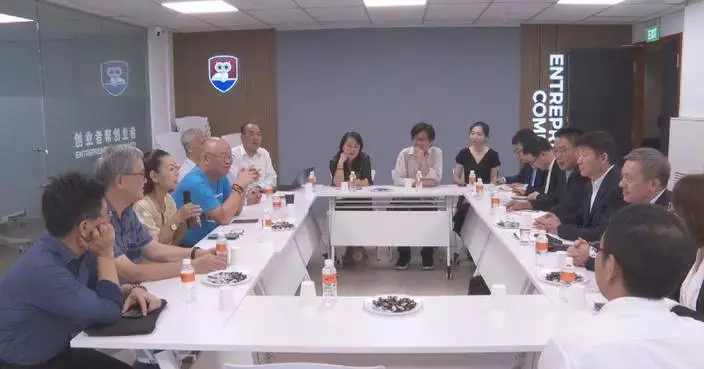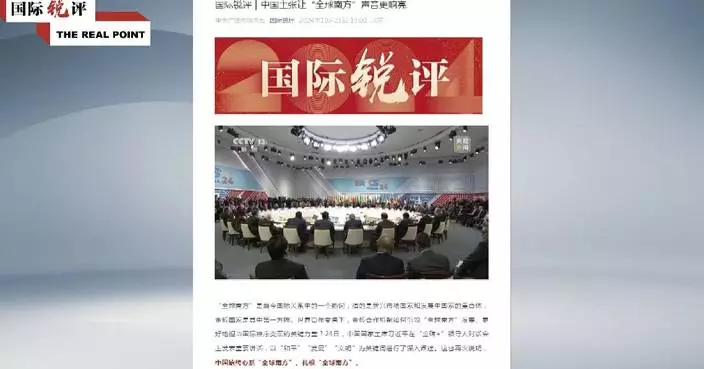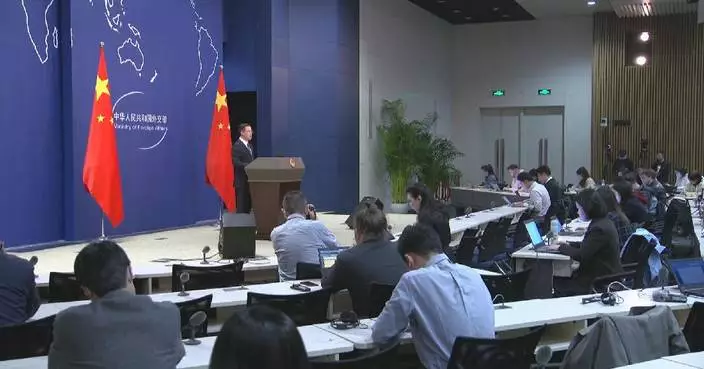The first Regional Workshop on Implementing the Biological Weapons Convention and Promoting Biosafety and Biosecurity in Southeast Asia was held from Wednesday to Friday in Shenzhen City of south China's Guangdong Province, aiming to strengthen regional coordination and collaboration in biosecurity. The workshop was co-hosted by China and the Lao PDR, with support from the United Nations Office of Disarmament Affairs, and attended by government officials and experts from China and 11 Southeast Asian countries.
As the first national-level meeting of its kind, the workshop provided a platform for exchanging experiences and building consensus on enhancing regional and global biosecurity governance.
"This is a good platform to exchange good lessons and best practices from countries in the region and China. We have been active members of the international community and the party to the convention itself. I think this could further enhance this exchange in the coming years," said Daovy Vongxay, the Lao PDR's permanent representative-designate to the United Nations in Geneva.
The Biological Weapons Convention (BWC), referenced by Vongxay, is the first multilateral disarmament treaty to ban an entire category of weapons of mass destruction, which came into effect in 1975.
In a summary statement from the workshop, the co-chairs emphasized the importance of strengthening the international biosecurity framework, particularly through initiatives that support the BWC.
According to Sun Xiaobo, director general of the Department of Arms Control of Chinese Ministry of Foreign Affairs, China and ASEAN countries share significant consensus and have ample room for collaboration on biosecurity issues.
"Through this workshop, we hope to foster increased dialogue and pragmatic cooperation between China and ASEAN countries in the field of biosafety, contributing together to the construction of a China-ASEAN community with a shared future. This collaboration aims to bolster global governance on biosafety and contribute to world peace and security," Sun concluded.
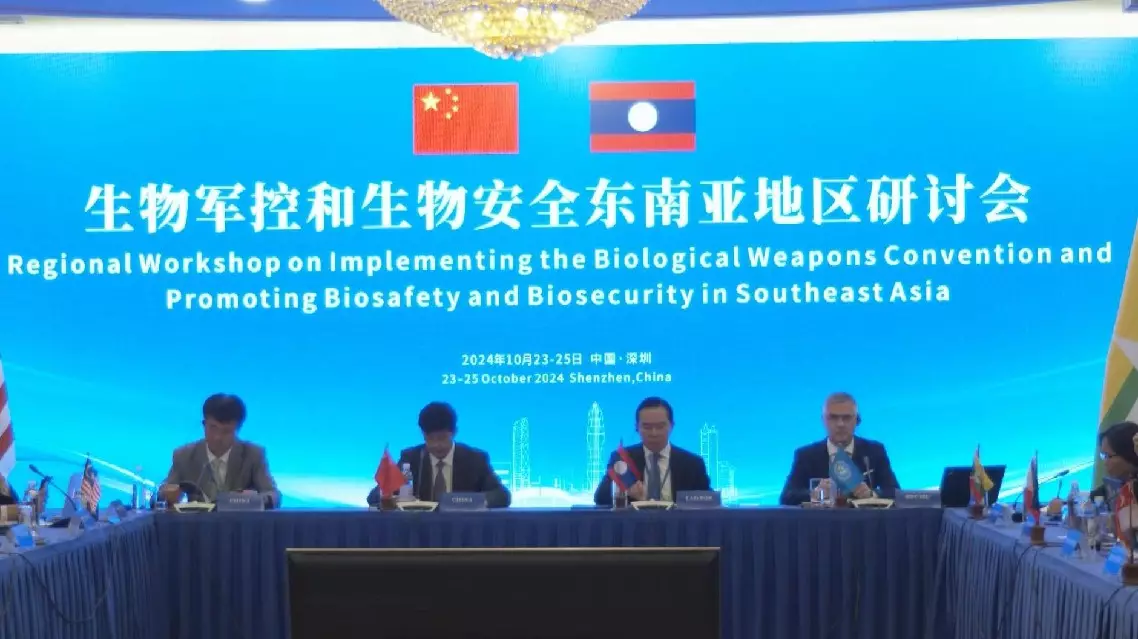
China hosts first regional workshop on promoting biosafety, biosecurity in Southeast Asia
Japanese experts call for investigation into alleged water pollution from U.S. military bases in the country, after the U.S. Army in Japan for the first time acknowledged the possibility of water contaminated with per- and polyfluoroalkyl substances (PFAS) overflowing from its bases.
According to the U.S. side, due to the heavy rain on August 30, around 47,000 liters of water contaminated with PFAS overflowed from the reservoir and other places of the Yokota Air Base of the U.S. Army in Japan, and the wastewater may have flowed outside the base through drainage ditches.
PFAS encompasses over 10,000 synthetic chemicals, including perfluorooctanesulfonic acid and perfluorooctanoic acids, used in products like non-stick cookware and water-resistant clothing.
"There have been several leaks of water contaminated with PFAS (in Yokota base) in the past and each time they said that the water did not leak outside. I think that's impossible. This time, due to heavy rain, they admitted that there might be a leak. They said that it happened far away from the firefighting training area. Are there no problems in other places?" said Yasuhiko Hasuike, the director of the Social Insurance Organization Department at the Social Medical Corporation Kenseikai.
According to internal U.S. military documents obtained by Japanese media, the content of PFAS in the polluted water of the Yokota base reservoir reached 1,620 nanograms per liter, which is 32 times the provisional standard of Japan.
Scholars said that according to the results of water quality surveys, the polluted areas across Japan are closely related to the U.S. military bases in the country.
"Since last year, water quality surveys have been conducted across Japan, and most of the polluted areas are located around the (U.S. military) bases, which is one of the characteristics indicated by the results. Regarding links with the U.S. military in Japan, pollution was also found near the Misawa base in Aomori Prefecture. This year, a report from U.S. military in Japan acknowledged that foam extinguishing agents had been used at the U.S. military ammunition depot in Higashihiroshima City, Hiroshima Prefecture, where PFAS concentrations in the surrounding area are also very high," said Kouji Harada, public health associate professor of the Graduate School of Medicine at Kyoto University.
From 2010 to 2023, there were eight incidents of PFAS leaking out of Yokota base, but the U.S. military stationed in Japan has always denied that the contaminated water has flowed to the outside, and refused to allow the Japanese government to enter the base for investigation.
"I think it is necessary to conduct an investigation within Yokota base, and the Japanese government should take appropriate measures if high concentrations of PFAS are detected inside the base. I believe it would be best to advance efforts to address and clean up pollution in surrounding areas," said Yasuhiko Hasuike.
The issue of PFAS-contaminated water has been ongoing in Japan for many years. However, the U.S. military in Japan has consistently denied any involvement, and the Japanese government has been reluctant to take action, partly due to reasons related to the Japan-U.S. Status of Forces Agreement.
"So far, no investigation has been conducted inside the U.S. military bases in Japan. On the one hand, the Japanese government has not requested access to conduct investigations inside these bases. On the other hand, under the Japan-U.S. Status of Forces Agreement, U.S. military bases in Japan are under the management of U.S. forces and relevant investigations have not been conducted," said Kouji Harada.
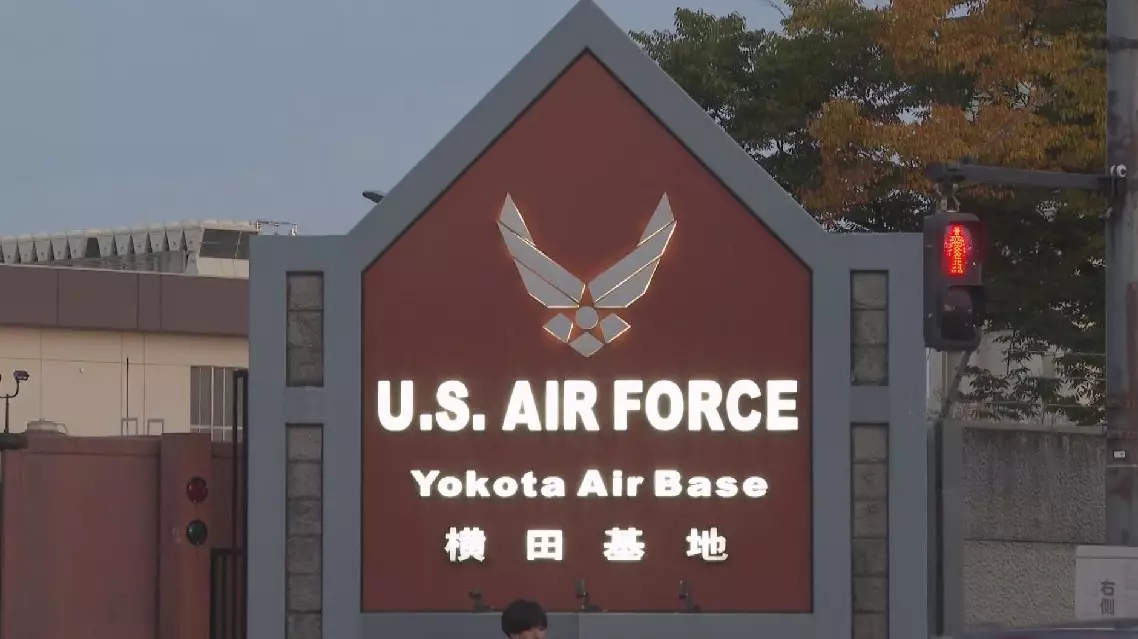
Japanese experts call for probe into US military bases' alleged water contamination





